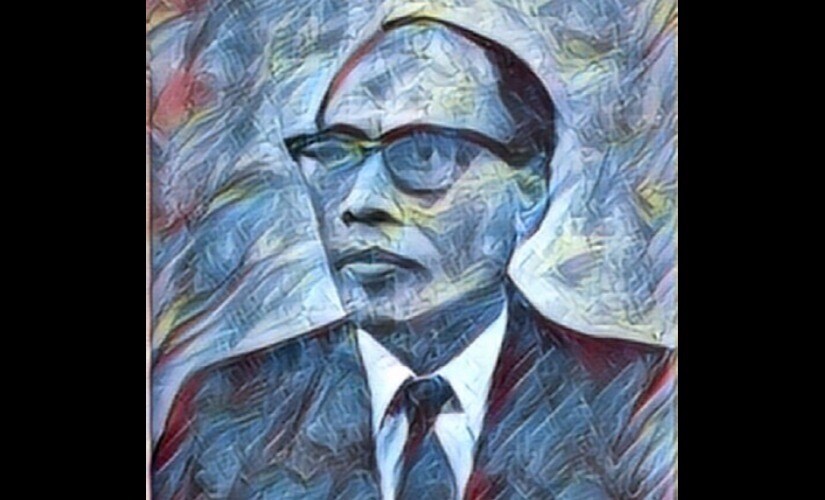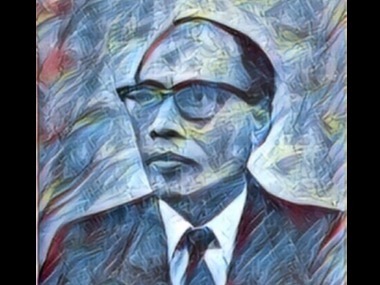Editor’s note: Under the norms of the caste system, Dalits were denied the pen. Before the advent of Dalit literature in India, much of Dalit history was oral in nature. Their lives were not available to them in written form, and even when available, it was a depiction by those who had no experiential connection with Dalits. It was Dr BR Ambedkar who stressed on literary assertion as a means to struggle against the caste system. Thus began the ceaseless movement of literary assertion by Dalits, who went on to write powerful stories about their lives. It marked a resurrection of their experiential world, which had been appropriated by the pens of Savarnas. Poems, stories, novels, biographies, autobiographies produced by Dalits established a new body of literature in which, for the first time, the downtrodden took centrestage. People who had been denied what humanity considers the ‘basics’, started to transform the lives of others like them, through the written word. As this movement of literary assertion by Dalits grew stronger, the unseen side of India — the side that is brutal and inhumane — became visible to the world. Maharashtra was at the forefront of this revolution that has, over the last six decades, helped transform the worldview about Dalit lives. Almost all of the writers who shaped the early theoretical discourse of Dalit literature were from Maharashtra and in this series, we revisit the lives and works of 10 distinguished Dalit writers from the state — and their impact on the literary world. In this first column, we look at the literary legacy of Shankarrao Kharat. *** During the late 1940s, Shankarrao Kharat was working with Dr BR Ambedkar, editing journals on the one hand and fighting legal battles on the other, for Dalits. Dr Ambedkar said to him, “We have doctors, engineers, lawyers and many educated people in our community but we don’t have writers. Our community’s literature needs to be established all over India. You must take on this responsibility.” That moment led to the birth of a writer in Shankarrao Kharat. Since then, Kharat was unstoppable, writing six novels, eight short story collections, an autobiography, and several non-fiction books — all focused on the issues important in the Dalits’ struggle. Today, not many people know about Shankarrao Kharat outside Maharashtra. However, if one can examine his body of work and its literary potential, its merits and its scholarly importance, his stature as a literary voice only grows. [caption id=“attachment_4119795” align=“alignnone” width=“825”]  Shankarrao Kharat was among the pioneering voices of Dalit literature from Maharashtra[/caption] Born into a family of mahars (ex-untouchables) in the village of Aatpaadi in the district of Sangli in 1921, Kharat became the vice chancellor of Marathwada University in Aurangabad (later renamed Dr Babasaheb Ambedkar Marathwada University — BAMU — after Dalits/Ambedkarites fought for it for 17 years, being murdered, raped, humiliated, and socially ostracised because of this demand). Kharat also witnessed this tumultuous period but his weapon to fight against such caste-brutalities was his pen — and the spirit of literature. Indeed, he wasn’t a person of anxious temperament although he lived through the time in Maharashtra when the practice of untouchability was not just apparent, but also direct and sanctioned by the prevalent public law of caste-society. But Kharat was a man with a vision — a vision lucidly manifested in his body of literature, evocative of Dalits’ quest for education and regaining their humanity. Kharat’s books, both fiction and non-fiction, occupied a unique space in the domain of literature in Marathi, including Tadipaar (1961), Saangawa (1962), Titawicha Phera (1963), Sutakaa (1964), Daundee (1965), Aadgaavache Paani and Gaavshiv (1970), Haatbhatti (1970) Gaavcha Tinopal Guruji (1971), Zopadpatti (1973), Masaledaar Guest House (1974), Footpath No 1(1980), Maaze Naav (1987), Dr Balasaheb Ambedkaranchya Ssahawasaat (1961), Dr Ambedkar’s Dharmaantar (1966) and Dr Babasaheb Ambedkaranchi Aatmakatha (1990). However, his autobiographical novel, Taral Antaral, first published in 1981, was the most celebrated work among the public and proved itself to be a seminal piece of writing in the realm of Marathi literature by a Dalit. You won’t find a glimpse of rage or anger in his narratives although a reader cannot fail to detect how difficult and humiliating it was to be born and grow up as a mahar in a Maharashtrian hamlet. Before readers would start reading his seminal work and jump to any conclusions, he cautioned them with these words: “Taral-Antaral is my autobiography. In fact, it is the story of my life. But alongside, it is ‘the story of an untouchable’. It is the story of my community, too. It is the story of changes that took place and taking place in the psychological, social and cultural life of a person, a village, and a community. Now the dawn is here. But when the sun will rise? It can not be seen yet. The answer to this is the gruesome struggle one has to go through.” What did he intend to convey to readers through this cautionary note? The characters in his novels and stories were rebellious — not in an angry/reactionary way, but rather, engaged in continuous struggle to find meaning in life, thus bringing a revolution within. Kharat’s ability to portray his characters patiently and with great poise was the strength of his narrative style. But Kharat’s literary stature wasn’t just due to that. He didn’t just make readers aware of the issues/milieu he wrote about — he intelligently invited them to be active participants in the struggles of his characters. As a result, readers could connect to his characters — not out of pity but out of a realisation that changes needed to be brought about in their personal and social world. This was a strength of his narratives that Kharat maintained throughout his writing career. Apart from his fictional writings, his non-fictional historical work that proved to be a magnum opus, was Maharashtratil Maharancha Itihaas (The History of Mahars in Maharashtra). This book stands on its own merit as it was passionately researched and splendidly written. The tragedy with the literary politics in India is that such works always went unnoticed. However, writers like Kharat wrote not only to tell stories, but also to resurrect the buried and appropriated histories of communities who were never given a space in the literary imagination of the country. Until the arrival of Dalit literature in India, this literary imagination was so dehumanised in this country that in it, Dalits only appeared as objectified entities rather than as human beings with the ability to assert and create life. While exposing this tragedy of the dominant imagination in India to the dominant castes, Kharat was both intelligent and generous. He didn’t complain; instead he appreciated positive efforts. In Maharashtratil Maharancha Itihaas, he writes: "‘Mahars’ are the aboriginal inhabitants of India. Mahars have existed in India since very ancient times. Mahar is one of the important castes in India in terms of its huge population. The ancient history of Mahars was of valour, bravery and prosperity. Mahars were the original rulers of the country. Maharashtra is the last kingdom of Mahars. The kingdom of Mahars ended in the country of Maharashtra. Such was the bright history of Mahar-Caste. But in this country, Brahmins who call themselves intellectuals have suppressed and buried this glorious history of Mahars over the period of centuries. Although this glorious history was buried by Savarna intellectuals, but, a few of these Hindu Savarna thinkers, historians and intellectuals have honestly tried to interlink the history of Mahars from ancient times. Of course, anybody would appreciate such genuine efforts." Kharat was undoubtedly one of the pioneers of Dalit literature in India, whose engagement with writing wasn’t only about a personal pursuit but genuinely a social movement — with the larger objective of annihilation of caste. Through his narratives, Kharat invited people to join the movement of building a just and equal society in which people who were kept out of the literary imagination of this country, could be humanised. Yogesh Maitreya is a poet and translator. He is the founder of Panther’s Paw Publication, an anti-caste publishing house. He is pursuing a Phd at the Tata Institute of Social Sciences, Mumbai.
We’re profiling the pioneering writers of Dalit literature from Maharashtra. This week: Shankarrao Kharat
Advertisement
End of Article


)



